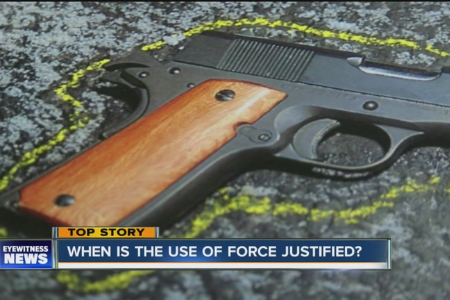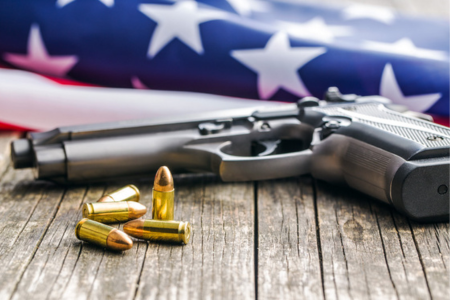From time to time I get asked about Pennsylvania’s laws on transferring a firearm from one party to another. Pennsylvania is pretty straight-forward when it comes to transferring firearms ownership. But there are a few simple laws to abide by.
First, people under the age of 21 cannot buy a pistol or revolver. However, they can be gifted a pistol or revolver, say from the estate of a grandparent, or as a birthday present.
Second, people under the age of 18 cannot buy a long gun…rifle or shotgun. However, they can be gifted or bequeathed a long gun.
Third, pistol and revolver transfers require a background check to be conducted on the buyer/transferee. This can be done one of two ways. The first way is to find an FFL convenient to both parties, assuming the FFL does firearms transfers. Both parties will need a photo ID, and the FFL will perform the background check to make sure the buyer/transferee is not a prohibited person (convicted felon or nutjob). The second way is to go to the local county sheriff’s office and have the sheriff do the background check and the transfer. If one party is on the eastern part of the state and the other party is on the western part, the seller can either drive the firearm to an FFL or sheriff near the buyer, or the seller can find a local FFL who will ship the firearm to an FFL near the buyer. Only FFLs can have accounts with and use UPS, USPS or FedEx, if the purpose of using them is to transfer a firearm. If you simply want to ship your firearm to a gunsmith for repair, you can use USPS, because formal title is not changing hands. So the local FFL will ship the firearm across the state to another FFL, from which the background check will then be conducted on the transferee. Now, in the case of Dakota Firearms, if you want to sell or give your firearms to someone else, we require you to produce ownership papers. That can be a bill of sale, a copy of an ATF Form 4473, or something containing the gun’s serial number which proves you own it. If you do not have such documents, in the “FFL Services” menu of this website is an affidavit we require you to download and complete stating that you are the owner of the firearm. No one from Dakota Firearms is going to the gray bar hotel for dealing in stolen guns. We reserve the right to stop any transfer which seems suspect.
Fourth, long guns, both rifles and shotguns, are exempt from this formal transfer process. So the seller/transferor can simply sell or give the long gun to the buyer/transferee, assuming the buyer/transferee is not a prohibited person. But if the seller/transferor is unsure of the buyer/transferee’s background, then do the transfer formally with a background check. If the firearm is transferred to a prohibited person, that is considered a straw purchase and that is illegal.
Fifth, immediate family members are exempt from this formality, regardless of the firearm. So if the transferee is grandparent, parent, child, grandchild or spouse of the transferor, the transferor can simply give the firearm to the transferee. Again, the transferee needs to be aware as to whether or not the transferee is a prohibited person. If that is the case, this transferring arrangement is considered a straw purchase, and that is illegal.
Sixth, if the buyer/transferee lives in a state other than Pennsylvania, the entire transaction must involve FFLs, regardless whether the firearm is a pistol, revolver or long gun. The selling/transferring party must find a local FFL who does transfers, to have them package and ship the firearm being sold/transferred. The shipping FFL will ship the firearm to an FFL in the buyer/transferee’s state, presumably close to the buyer/transferee. The receiving FFL will then contact the buyer/transferee and conduct a background check on the buyer/transferee. The receiving party will have to abide by the laws of the state to which the firearm is shipped.
Now, what happens when a divorce is involved? It depends on the timing of the divorce. If the gun is being transferred while the marriage is still intact, then the spousal exemption, above, applies. If the gun is being transferred as part of the divorce settlement, then the gun and it’s serial number should be included in the settlement paperwork, as proof that one party did not steal the firearm from the other party. If the divorce is final and a transfer is then attempted, the spousal exemption will not apply. In that case, the two parties must follow the rules above, depending on whether the gun is a pistol, revolver or long gun. So if the gun is a pistol or revolver, then both, now divorced, parties must go to an FFL and the transferee must have a background check conducted.



